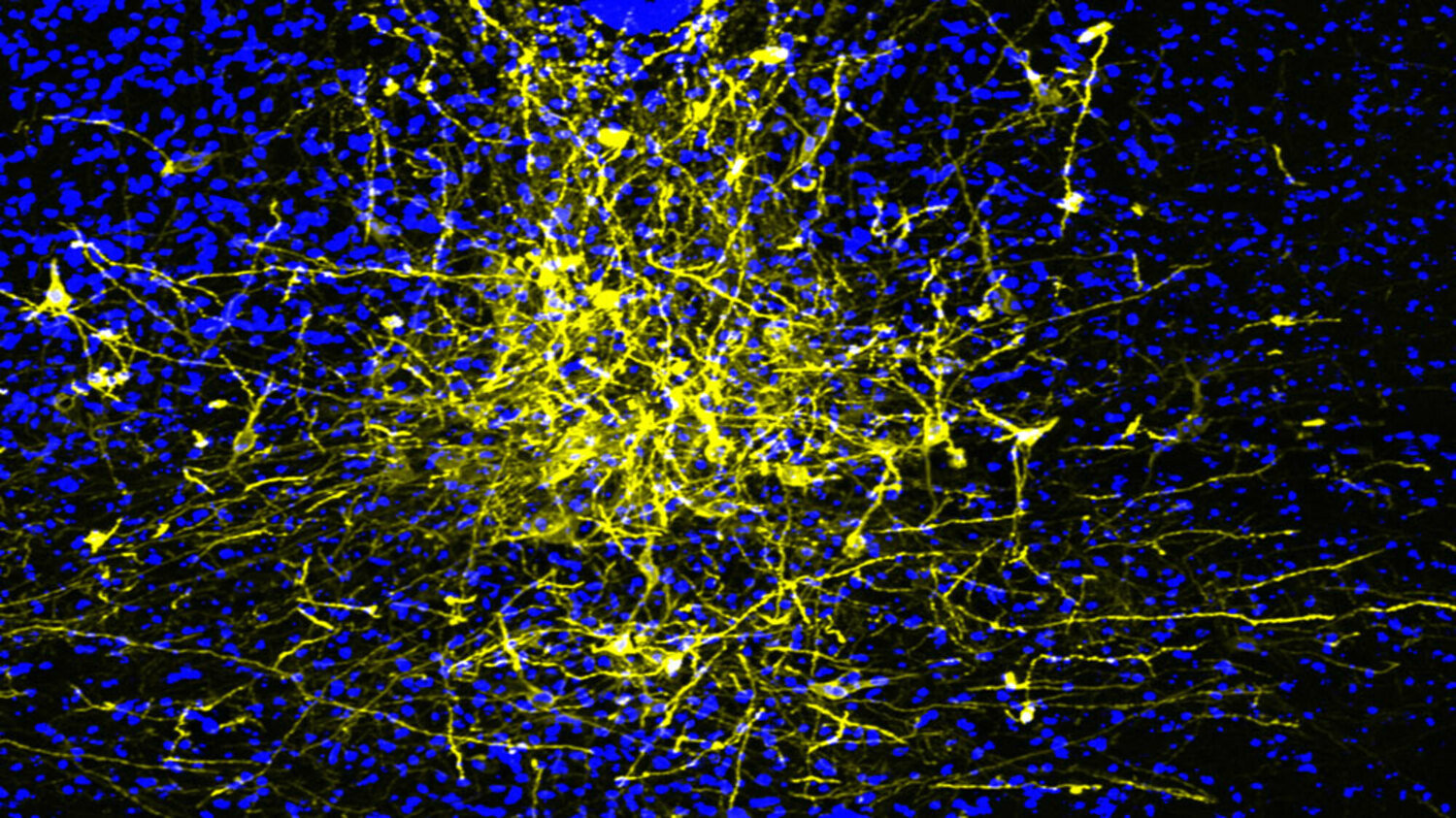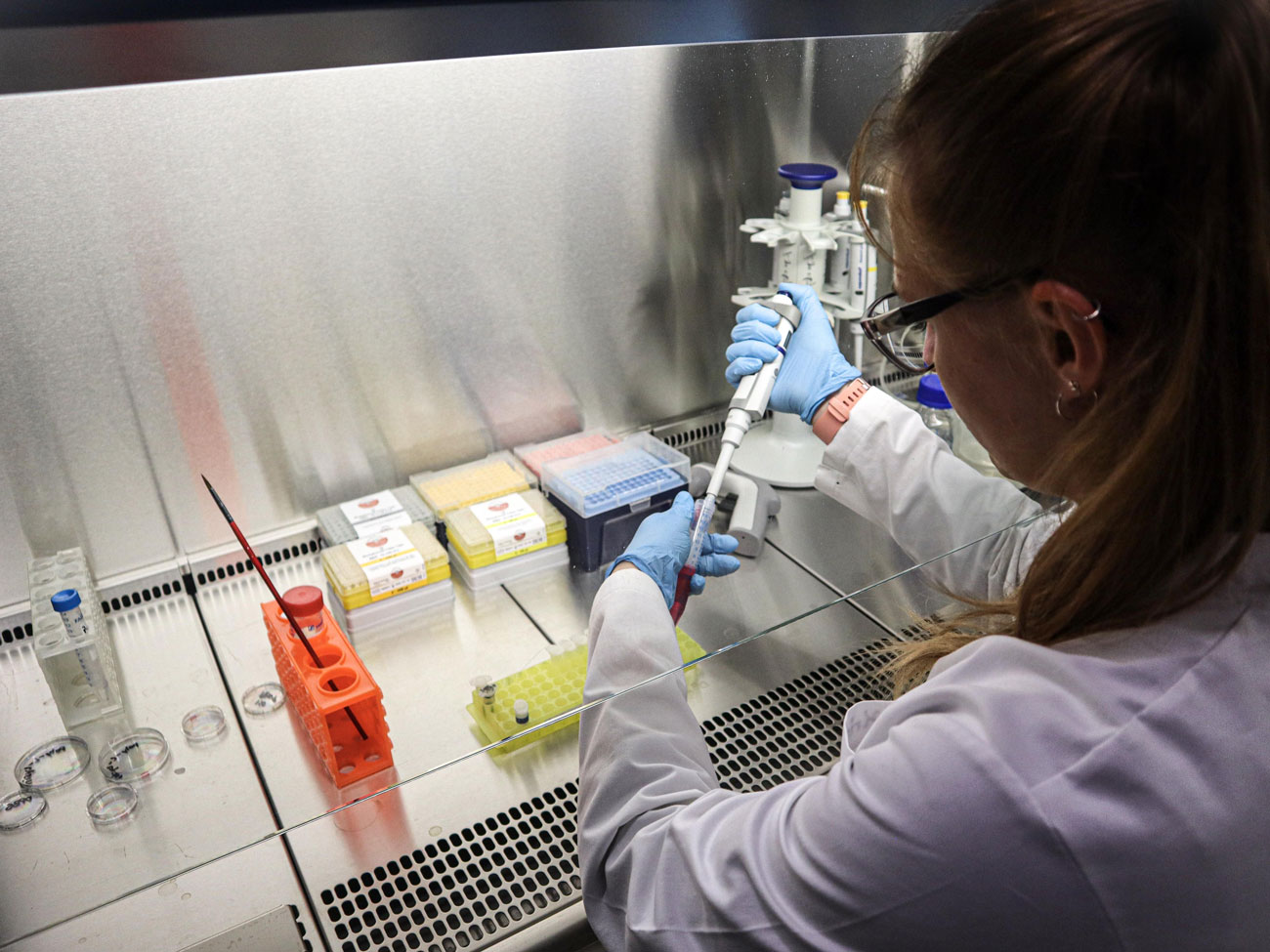
© AG SynBio / Universität Bremen
Explain This, Professor: Serotonin, the Happiness Hormone
What, who, why? In the “Explain This, Professor” series, Bremen researchers reveal why some things are as they are. Today: How we create a “good mood” in the brain.
“I wish you happiness in the new year,” is written on the little card that the marzipan pig holds in its hand. Such wishes are simply a part of going into the New Year. But how does being happy work? What happens in our bodies when we’re happy? And can we trigger it ourselves? Professor Alivia Masseck from the University of Bremen has the answers.
One messenger substance cannot be missing in our bodies when it comes to being happy: serotonin. Professor Masseck has been carrying out research on the happiness hormone for many years. “It ensures that we’re in a good mood. That mainly happens in the brain,” explains the researcher, who leads the Synthetic Biology research group at the University of Bremen. If our serotonin levels are normal or slightly elevated, we’re in a good mood, can handle failures in a better manner, and have more patience.
Serotonin in Brain and Gut
Careful: Too much of a good thing is everything but beneficial. Serotonin not only has an effect in the brain but also in the gut – up to 95 percent of the entire serotonin in our body can be found there. “Studies show that illnesses such as irritable bowel syndrome or celiac disease may be connected to elevated serotonin levels in the gut,” explains Professor Masseck.
However, too little serotonin is also not something you want – it affects your mood. People who are depressed generally have a greatly decreased level of serotonin in their central nervous system. This is usually treated with strong medication. In order to allow for said medication to one day be used more accurately and with less side effects, Masseck is researching what serotonin specifically does in the brain and which role the messenger substance plays in the brain in the frame of anxieties or depression.

© C. Schreiber / Universität Bremen
Good Balance Needed
The same applies to the level of serotonin as to life – we need to create a healthy balance. But how? Our body is unable to produce serotonin itself. This means that we need to feed it with the substance through what we eat. “Food that contains a great deal of serotonin is advertised on the internet. But that’s not the entire truth,” explains the scientists.
It is important how the serotonin enters our body. The L-tryptophan amino acid plays a decisive role as it can permeate the so-called blood-brain barrier and actually enter the brain in this way. There are nervous cells there that can create serotonin using the amino acid. The blood-brain barrier protects the brain against pathogens and undesired messenger substances. Much like a bouncer, the barrier only lets substances in that are good for the brain.
Amino Acid Is Decisive
“Therefore, it is important to eat food that contains this amino acid. This could be, for example, nuts, eggs, poultry, and fish,” states Olivia Masseck. And what about chocolate? “Yes, chocolate can also have a positive effect. But that’s because of a different substance – namely dopamine. That is connected to our reward system.”
And what else can we do to attain a healthy serotonin level? “Sport,” is the short answer. It’s connected to the blood-brain barrier again. If we take the club bouncer example again – there may sometimes be queues in front of the disco, or the brain, because too much amino acid wants to get in at the same time. When we do sport, our muscles use up many of the essential amino acids. In turn, the queue at the blood-brain barrier becomes shorter and the L-tryptophan can enter the brain quicker.
Another tip from the biologist: Try to go to bed at the same time. That keeps the messenger substances of the sleep-wake rhythm balanced. Serotonin also plays an important role here: It helps us to have a fresh start to the day. “It is also a precursor of melatonin, the sleep hormone. No serotonin means no melatonin. As is often the case, this once more shows us that a great deal in our bodies is connected.”
More Onformation
Website of the Synthetic Biology research group